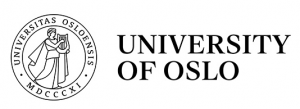Postdoctoral fellow in the field of Digital Criminology
Post-Doctoral Research Fellowship in Digital Criminology is available to undertake research as part of the project “The changing relationships between digital technologies, DNA and evidence” (Digital DNA). The project is funded by the European Research Council. The candidate will work closely together with Mareile Kaufmann at the Department of Criminology and Sociology of Law.
The period of appointment runs for three or four years. The preferred period of appointment is four years with teaching duties constituting 25 % of the overall workload. A four year fellowship requires that the candidate can contribute to the current teaching needs of the Faculty of Law and that pedagogical base competences are acquired as part of the 25% teaching duties.
Qualification requirements and other qualities
- Applicants must hold a degree equivalent to a Norwegian doctoral degree (PhD) in criminology or other relevant social science background.
- The doctoral dissertation must have been submitted for evaluation by the closing date. Appointment is dependent on the public defense of the doctoral thesis being approved.
- The candidate must be qualified to work theoretically and empirically in the described project.
- Applicants must submit a project description of 5-10 pages explaining how they would tackle their research task in the given time period. The candidate must have training in qualitative methods, as well as basic competences in sociological research on technology.
- The project language is English and the applicants should have an excellent command of the English language, written and spoken. A good command of a Scandinavian language is also an advantage, though not a condition.
Contact information
For questions concerning content: Project leader Mareile Kaufmann, e post: Mareile.kaufmann@jus.uio.no
For administrative questions: HR-officer Siri Martenson
Deadline : 15th June 2021
